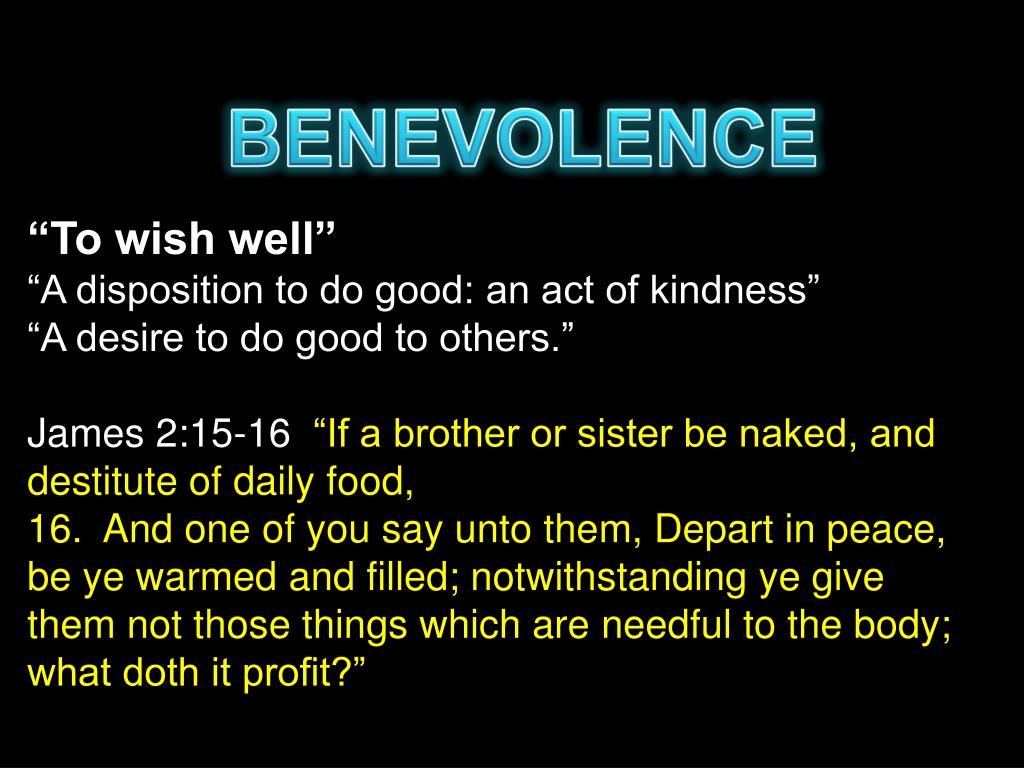Have you ever wondered what it truly means to embody benevolence as outlined in the Bible? Benevolence, a concept deeply rooted in compassion and kindness, holds significant importance in the teachings of Christianity. In this blog post, we will delve into the rich biblical understanding of benevolence and explore its significance in our daily lives.
By understanding and embracing benevolence as portrayed in the Bible, we can experience a profound transformation in our relationships and interactions with others. The act of showing kindness and generosity not only reflects the love of God but also brings about a sense of fulfillment and joy that extends beyond ourselves. Join us as we uncover the true essence of benevolence and discover how it can positively impact both our spiritual journey and the world around us.
Biblical Insights into the True Meaning of Benevolence
In the Bible, benevolence is often associated with kindness, compassion, and generosity. The concept of benevolence comes from the Latin word “benevolentia,” which means goodwill or kindness. In biblical teachings, benevolence is a fundamental quality that reflects God’s love and care for His creation.
One of the key passages in the Bible that speaks about benevolence is found in the book of Proverbs. Proverbs 19:17 states, “Whoever is kind to the poor lends to the Lord, and he will reward them for what they have done.” This verse emphasizes the importance of showing kindness and generosity to those in need, as it is seen as an act of service to God Himself.
Another well-known passage that highlights benevolence is found in the New Testament, in the book of Galatians. Galatians 6:10 advises believers to “Do good to all people, especially to those who belong to the family of believers.” This verse underscores the importance of extending kindness and compassion not only to those within the community of faith but also to all individuals in need.
The ultimate example of benevolence in the Bible is Jesus Christ. Throughout the Gospels, Jesus demonstrated unwavering love and compassion towards the marginalized, the sick, and the oppressed. His selfless acts of healing, feeding the hungry, and comforting the brokenhearted serve as a model for believers to follow in their own practice of benevolence.
In addition to individual acts of kindness, the Bible also calls for a communal expression of benevolence. In the book of Acts, the early Christian community is described as sharing everything they had with one another and meeting each other’s needs with generosity and joy. This spirit of communal benevolence reflects the ideal of a caring and compassionate community that looks out for the well-being of all its members.
Overall, benevolence in the Bible is more than just a moral virtue; it is a reflection of God’s character and a fundamental aspect of living out one’s faith. By showing kindness, compassion, and generosity towards others, believers embody the love of God and fulfill the call to be agents of His grace and mercy in the world.
What is an example of benevolence?
An example of benevolence in the Bible can be seen in the story of the Good Samaritan (Luke 10:25-37). In this parable, a man is robbed and left wounded on the side of the road. While a priest and a Levite pass by without helping, a Samaritan stops to assist the man, taking care of his wounds and providing for his needs. The actions of the Samaritan demonstrate a true spirit of benevolence and kindness towards others.
What does benevolence mean spiritually?
Benevolence spiritually in the context of the Bible refers to the act of showing kindness, generosity, and goodwill towards others. It is often linked to the concept of love and compassion as demonstrated by God towards humanity. In the Bible, benevolence is encouraged as a way to reflect God’s character and to fulfill the commandment to love one another. This concept is exemplified in verses such as Galatians 6:10, which states, “Therefore, as we have opportunity, let us do good to all people, especially to those who belong to the family of believers.” Ultimately, benevolence is seen as a virtuous quality that aligns with the teachings of Christ and promotes unity, harmony, and service within the community of believers.
What did Jesus say about benevolence?
Jesus emphasized the importance of benevolence throughout his teachings in the Bible. One of the well-known passages is from the book of Luke 6:38 where Jesus says, “Give, and it will be given to you. A good measure, pressed down, shaken together and running over, will be poured into your lap. For with the measure you use, it will be measured to you.”
Another important teaching on benevolence by Jesus can be found in Matthew 25:35-40, where he says, “For I was hungry and you gave me something to eat, I was thirsty and you gave me something to drink, I was a stranger and you invited me in, I needed clothes and you clothed me, I was sick and you looked after me, I was in prison and you came to visit me.”
In these passages, Jesus highlights the significance of helping others and being generous in our actions towards those in need. This message underscores the importance of compassion, kindness, and selflessness in the Christian faith.
What is the meaning of divine benevolence?
Divine benevolence in the context of the Bible refers to the goodness, kindness, and compassion that God shows towards his creation. It is the loving and merciful nature of God that is demonstrated through acts of grace, forgiveness, and provision for humanity. Divine benevolence is often highlighted in scriptures that speak of God’s steadfast love, faithfulness, and care for his people, emphasizing the unconditional and generous nature of God’s character. Ultimately, divine benevolence is a reflection of God’s perfect and infinite love for all of creation.

